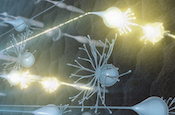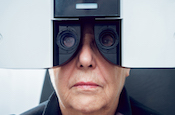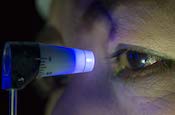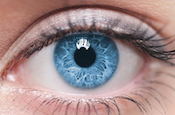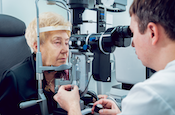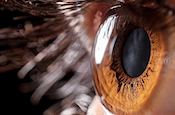Keyword search: 176 records shown
| Course categorySort by Course category Ascending Ascending | Course nameSort by Course name Ascending | Course summarySort by Course summary Ascending | New CourseSort by New Course Ascending |
|---|---|---|---|
| Administration only | TEST DO NOT USE - XXXX: Part 1 - Definitions and classification (Non-interactive) (Early 2026) |
CPD Ref: C-xxxxxx CPD Points: CPD Type: Non-interactive Closing Date: 31 March 2026 Domains: Clinical practice, Communication
The first part of the XXXX series provides an updated overview of XXXX definitions and prevalence, and explores the classification of its various types. It also covers the signs, symptoms and risk factors to support more accurate differential diagnosis and timely referral. Topics: XXXX, NICE, SIGN, POAG, COAG, CAG, Congenital, Ocular hypertension, Prevalence, Secondary, Paediatric, PAC, PACG, AACG. | No |
| Administration only | TEST DO NOT USE - XXXX: Part 2 - Pathophysiology and risk factors (Non-interactive) (Early 2026) |
CPD Ref: C-xxxxxx CPD Points: CPD Type: Non-interactive Closing Date: 31 March 2026 Domains: Clinical practice, Communication
The second part of the XXXX series reviews normal eye anatomy and the pathophysiological changes involved in the development of XXXX. It also explores current theories on the causes of XXXX and examines the risk factors associated with its different types. Topics: XXXX, CCT, IOP, POAG, CCAG, Ocular hypertension, PAC, PACG, Risk calculator, Optic nerve, Optic disc, Anatomy. | No |
| Administration only | TEST DO NOT USE - XXXX: Part 3 - Assessment (Anterior segment and anterior chamber angle) (Non-interactive) (Early 2026) |
CPD Ref: C-xxxxxx CPD Points: CPD Type: Non-interactive Closing Date: 31 March 2026 Domains: Clinical practice, Professionalism
The third part of the XXXX series focuses on evaluating the anterior segment and angle to recognise key signs of XXXX and identify major risk factors. Topics: XXXX, NICE, SIGN, POAG, COAG, CAG, Van Herick, Smith’s method, Gonioscopy, OCT, Referral, PDS, PXF. | No |
| Administration only | TEST DO NOT USE - XXXX: Part 4 - Assessment of the intraocular pressure (IOP) (Non-interactive) (Early 2026) |
CPD Ref: C-xxxxxx CPD Points: CPD Type: Non-interactive Closing Date: 31 March 2026 Domains: Clinical practice, Professionalism
The fourth part of the XXXX series focuses on measuring intraocular pressure (IOP) with both contact and non-contact tonometers, reviewing normal results and outlining referral criteria. Topics: XXXX, NICE, SIGN, POAG, COAG, CAG, Intraocular pressure, Referral , IOP, tonometer, GAT, Perkins, Ocular hypertension, CCT, Corneal thickness. | No |
| Administration only | TEST DO NOT USE - XXXX: Part 5 - Assessment of the optic disc (Non-interactive) (Early 2026) |
CPD Ref: C-xxxxxx CPD Points: CPD Type: Non-interactive Closing Date: 31 March 2026 Domains: Clinical practice, Professionalism
The fifth part of the XXXX series explores the assessment and measurement of the optic disc, highlighting key signs of XXXX. It explains how to use indirect ophthalmoscopy and interpret OCT disc images to support referral decisions and the management of XXXX suspects. Topics: XXXX, NICE, SIGN, POAG, COAG, Optic disc, Assessment, Slit lamp, Indirect ophthalmoscopy, OCT, Management, Referral, Volk. | No |
| Administration only | TEST DO NOT USE - XXXX: Part 6 - Visual fields (Non-interactive) (Early 2026) |
CPD Ref: C-xxxxxx CPD Points: CPD Type: Non-interactive Closing Date: 31 March 2026 Domains: Clinical practice, Professionalism
The sixth part of the XXXX series focuses on accurately evaluating the visual field to identify important signs of XXXX. Topics: XXXX, NICE, SIGN, Management, Referral, Threshold, SITA, ZATA, Static, Kinetic, FDT. | No |
| Administration only | TEST DO NOT USE - XXXX: Part 7 - Management, referral and care pathways (Non-interactive) (Early 2026) |
CPD Ref: C-xxxxxx CPD Points: CPD Type: Non-interactive Closing Date: 31 March 2026 Domains: Clinical practice, Professionalism
The seventh part of the XXXX series explores national and local refinement and referral pathways, and discusses how to make appropriate clinical decisions in managing a XXXX suspect by considering all investigative findings. Topics: XXXX, NICE, SIGN, POAG, COAG, Ocular hypertension, Management, Referral, Repeat measures, Pathway, IOP, Visual field. | No |
| Administration only | TEST DO NOT USE - XXXX: Part 8 - Treatment (Non-interactive) (Early 2026) |
CPD Ref: C-xxxxxx CPD Points: CPD Type: Non-interactive Closing Date: 31 March 2026 Domains: Clinical practice, Specialty CPD (IP)
The eighth and final part of the XXXX series explores current and future treatments of XXXX. Topics: XXXX, NICE, SIGN, POAG, COAG, CAG, Ocular hypertension, Laser treatment, Surgical treatment, Pharmacological treatments, Management, Referral, MIGS, SLT. | No |
| Audio – Clinical assessment | Sound Optometry: Episode 4 - Binocular Vision |
In this episode, we hear about a scenario in which a sixth nerve palsy was detected in an urgent remote consultation with an elderly patient. We also explore methods that optometrists have at their disposal to detect and manage binocular vision problems in children. Topics: Binocular vision assessment, Examining children, Amblyopia, Strabismus, Squint, Incommitant, Convergence insufficiency, Exercises, Ocular Motility, Stereopsis, Prisms, Double vision, Orthoptics, Referrals. | No |
| Audio – Clinical assessment | Sound Optometry: Episode 11 - Myopia Management: Active not passive | No CPD Points Domains: Clinical practice, Professionalism
In this episode, we hear from both parent and child as they share their experiences with myopia management using soft contact lenses. Michelle Hanratty then speaks with optometrist Kathryn Webber about best practices in myopia management. Together, they discuss how to identify suitable candidates and offer practical advice on how to communicate the potential benefits of myopia management to patients and their families. Topics: Myopia management, Risk factors for myopia, Communication, Fitting contact lenses in children, Pathological myopia. | No |
| Audio – Clinical assessment | Sound Optometry: Episode 12 - Anterior Ocular Lesions |
Domains: Clinical practice, Communication
In this episode, we hear from a patient diagnosed with conjunctival melanoma, before Michelle Hanratty speaks with Professor Heinrich Heimann about lesions of the ocular surface and anterior chamber. Their discussion explores how to recognise key signs, identify associated risk factors and approach the investigation, management and treatment of affected patients. Topics: Conjunctival lesions, Uveal lesions, Ocular tumours, Referrals. | No |
| Audio – Clinical assessment | Sound Optometry: Episode 16 - Binocular Vision: Managing convergence anomalies |
No CPD Points Domains: Clinical practice, Professionalism
In this episode, Michelle Hanratty speaks with Dr Aleksandra Mankowska about key examination techniques for investigating binocular vision anomalies. Together, they explore the management of convergence insufficiency and delve into the challenging topic of prescribing prisms and orthoptic exercises. Topics: Paediatric, Convergence insufficiency, Convergence excess, Esophoria, Exophoria, Prism, Cycloplegic refraction. | No |
| Audio – Clinical assessment | Sound Optometry: Episode 19 - Modern contact lens practice: The CLEAR way forward |
No CPD Points Domains: Clinical Practice, Communication
In this episode, Michelle Hanratty discusses the highlights of the BCLA Continued Learning Evidence-based Academic Report (CLEAR) with Professor James Wolffsohn and Neil Retallic. Topics: Contact lenses, Evidence-based practice, Fitting, Presbyopia, Multifocal, Toric, CLEAR, BCLA. | No |
| Audio – Clinical assessment | Sound Optometry: Episode 25 - Visual Field Tests: When, why and what it can mean |
Domains: Clinical Practice
In this episode Michelle Hanratty first talks to optometrist Stephen Freeman about the clinical decision making process of when to conduct a visual field test. This is followed by a discussion with Dr Lindsay Rountree about visual field testing including how to best achieve reliable test results and how to interpret them; how to relate visual field loss to the location in the visual pathway and likely causes. The episode concludes with advice on referral, and the importance of communicating the impact of visual field loss to a patient’s driving status. Topics: Visual Fields, Perimetry, Visual pathway, Stroke, Brain tumours, Neurological disease, Driving standards, Referrals. | No |
| Audio – Clinical assessment | Sound Optometry: Episode 26 - Patient mental health: Eyes and minds |
Domains: Clinical Practice, Communication
In this episode Michelle Hanratty asks optometrist Sarah Farrant and her patient Christine Lanaghan who suffers from dry eye disease how to talk about mental health in practice. Michelle then investigates the relationship between mental health and ocular health with Dr Dennis Pardo, an optometrist and psychotherapist in Massachusetts. Topics: Mental Health, Well-being, Anxiety, Stress, Communication, Side-effects of systemic drugs, Dry eye. | No |
| Audio – Clinical assessment | Sound Optometry: Episode 32 - Managing myopia: Now and for the future |
Domains: Clinical practice, Communication
In this episode, Michelle speaks with a highly myopic patient as well as a parent of highly myopic children about myopia’s impact on lifestyle and ocular health, and their hopes and fears for the future. We also hear from Kathryn Webber about recent myopia management research, advancements and guidance. Topics: Myopia management, High myopia, Risk factors for myopia, Communication, Pathological myopia. | No |
| Audio – Clinical assessment | Sound Optometry: Episode 36 - SEN: The path to lifelong eyecare |
Domains: Clinical practice, Communication
In this episode, we hear from the assistant headteacher and sensory impairment lead of a SEN primary school about the impact of visual dysfunction on SEN children. Michelle then speaks to Professor Rachel Pilling, delving into the potentially daunting task of carrying out an eye examination on children with SEN and providing valuable hints, tips and resources to better equip optometrists and lay the foundations to lifelong eyecare for SEN children. Topics: SEN, Special educational needs, Paediatric eyecare, Eye examinations, Cerebral Visual Impairment (CVI). | No |
| Audio – Clinical assessment | Sound Optometry: Episode 40 - Menopause: Effect and cause |
Domains: Communication, Clinical Practice
In this episode, presenter Michelle and consultant ophthalmic surgeon Julia Sen discuss typical menopausal changes and subsequent ocular changes, as well as the need to take a more holistic approach in treating menopausal patients. We then hear from Professor Stuti Misra about current research into changes to ocular health in relation to fluctuating or decreasing hormone levels. Topics: Menopause, Perimenopause, Hormone replacement therapy, Dry eye, Ocular surface disease, Meibomian Gland Dysfunction, Glaucoma, Cataract, Communication. | No |
| Audio – Clinical assessment | Sound Optometry: Episode 43 - Vision Standards: Colour perception and more |
Domains: Communication, Clinical Practice
In this episode, Michelle Hanratty discusses the vision standards for safety-critical occupations with Professor John Barbur, who has developed a sophisticated colour vision test that is widely used to grade the severity of colour vision deficiency. We also hear from Ian Trimmer, who provides an insight into communicating bad news and why vision can be a particularly sensitive topic. Topics: Occupational vision standards, Driving and vision, Colour vision testing, Colour vision deficiency, Communication, Breaking bad news. | No |
| Audio – Clinical assessment | Sound Optometry: Episode 45 - Vision and Dementia: Modifying risk for better outcomes |
Domains: Communication, Clinical Practice
This podcast episode builds on the Docet webinar Dementia and Optometry: Research and Practice. Michelle speaks with Rakhee Shah and Simon Raw to address attendee questions and reinforce the key messages about the vital connection between vision and dementia. We also hear from Fadi Alfaqawi about how to assess the best course of action for a patient when advanced visual corrections are needed. Topics: Dementia, Alzheimer’s disease, Cataract, Vision loss, Visual impairment, Vision assessment, Domiciliary eyecare, Communication, Consent, Referrals. | No |
| Audio – Ocular disease and management | Sound Optometry: Episode 2 - Papilloedema |
In this episdoe, we hear about a clinical scenario where papilloedema was detected in a young girl. Michelle Hanratty then discusses the topic of papilloedema, its presentation, causes and potential treatment with consultant neuro-ophthalmologist Naz Raoof. Topics: Communication, Neuro-ophthalmology, Optic disc anomalies, Papilloedema, OCT. Area of interest: MECS. | No |
| Audio – Ocular disease and management | Sound Optometry: Episode 1 - Ocular Allergies |
   
In this episode, we explore how patients with ocular allergy seek clinical advice and treatment. We hear from a community pharmacist, often the first port of call for allergy sufferers, before discussing ocular allergy in more detail with Dr Peter Frampton. Topics: Allergic conjunctivitis, Seasonal and perennial allergy, Topical medications and contact lenses, Effective history taking, Remote consultations, Allergy vs adverse reaction. Area of interest: Independent prescribing. | No |
| Audio – Ocular disease and management | Sound Optometry: Episode 3 - Flashes and Floaters |

In this episode, Michelle is joined by Consultant Vitreo-Retinal Surgeon Stephen Lash and Clinical and Regulatory Advisor for the Association of Optometrists (AOP) Roshni Kanabar to discuss how to manage suspected retinal detachment. Topics: Retinal tear, Retinal detachment, Flashes and floaters, Posterior vitreous detachment, Record keeping, Communication, Referrals. | No |
| Audio – Ocular disease and management | Sound Optometry: Episode 5 - Acute Red Eye |
In this episode, optometrist Robert Longhurst discusses the increased incidence of viral conjunctivitis-related red eye during the COVID-19 lockdown of Spring 2020. Consultant Ophthalmologist David Lockington explores the investigation and management of acute red eye. Topics: Red eye, Viral conjunctivitis, Microbial keratitis, Contact lens complications, Independent prescribing, Emergency referrals. | No |
| Audio – Ocular disease and management | Sound Optometry: Episode 6 - Medical Retina |
In this episode, Michelle Hanratty explores the referral, investigation and management of wet age-related macular degeneration (AMD) with consultant ophthalmologist Rupal Morjaria. Topics: Medical retina, Age-related macular degeneration, Referrals, Retinitis pigmentosa, Patient communication, Gene therapy. | No |
| Audio – Ocular disease and management | Sound Optometry: Episode 8 - Cataract, A tale of two surgeons |
In this episode, Michelle speaks with consultant ophthalmologist Arijit Mitra about his personal experience with cataract. We also hear from Ajai Tyagi, who shares his insights from a surgical perspective. The episode wraps up with valuable advice from both surgeons on referral practices and postoperative care for cataract patients. Topics: Cataract, Referrals, Patient communication, Monovision. | No |
| Audio – Ocular disease and management | Sound Optometry: Episode 9 - Suspicious Discs: When is a disc a disc at risk? |
In this episode, we explore a clinical case in which idiopathic intracranial hypertension resulted in severe visual symptoms and bilateral optic disc swelling. Michelle then discusses the key features of papilloedema, including its presentation, underlying causes and differential diagnoses, with neuro-ophthalmologist Dr Denize Atan. The second part of the episode focuses on the unilateral causes of optic disc swelling, offering a deeper understanding of how they differ from bilateral presentations. Topics: Optic disc drusen, Optic disc swelling, Optic neuritis, Optic neuropathy, Papilloedema, Referrals. | No |
| Audio – Ocular disease and management | Sound Optometry: Episode 10 - Keratoconus: Screening, surgery and saving sight |
No CPD Points Domains: Clinical practice, Communication
In this episode, Michelle Hanratty interviews optometrist Yahya Vali on the detection of keratoconus in routine clinical practice and consultant ophthalmologist Damian Lake on referral strategies and treatment approaches, highlighting the critical importance of early diagnosis. Topics: Keratoconus, Crosslinking, Corneal transplant, Retinoscopy, Keratometry, Referrals, Corneal Topography. | No |
| Audio – Ocular disease and management | Sound Optometry: Episode 14 - Glaucoma |
Domains: Clinical practice, Professionalism
In this episode, Michelle Hanratty discusses the risk of glaucoma going undetected in patients who have undergone laser vision correction, with consultant ophthalmologist Imran Masood. Hospital optometrist Paddy Gunn then explains how to manage borderline cases to ensure appropriate referral, and how to reassure patients who have missed routine glaucoma monitoring appointments during the COVID-19 pandemic. Topics: Glaucoma, Referrals, Intraocular pressure, Laser vision correction. | No |
| Audio – Ocular disease and management | Sound Optometry: Episode 15 - Vitreomacular Disorders: Smoothing wrinkles and mending holes |
Domains: Clinical practice, Professionalism
In this episode, Michelle Hanratty is joined by Mr Kam Balaggan, consultant vitreoretinal and cataract surgeon, to discuss the presentation and optometric management of vitreomacular disorders encountered in everyday practice. The conversation explores the investigation of epiretinal membranes, vitreomacular traction and macular holes, with key guidance on assessing referral urgency. Topics: Vitreomacular conditions, OCT, Epiretinal membrane, Vitreomacular traction, Macula holes, Referrals. | No |
| Audio – Ocular disease and management | Sound Optometry: Episode 20 - Sudden loss of vision: Time is sight! |
No CPD Points Domains: Clinical Practice, Professionalism
In this episode, Michelle Hanratty discusses sudden loss of vision with hospital optometrists Helen Wilson and Amanda Harding, including the presentation and optometric management of retinal vascular occlusions, differential diagnosis, appropriate triage and referrals. The episode concludes with the clinical signs optometrists need to look out for when examining a patient with a history of a vascular occlusion. Topics: Sudden loss of vision, Retinal artery occlusion, Retail vein occlusion, Giant Cell Arteritis, Arteritic ischaemic optic neuropathy, Amaurosis Fugax, Stroke. | No |
| Audio – Ocular disease and management | Sound Optometry: Episode 21 - Uveitis: Detecting the rare and managing the obvious |
Domains: Clinical Practice, Communication
In this episode, Michelle Hanratty discusses the presentation and optometric management of both posterior and anterior uveitis with Professor Alastair Denniston and his colleague Dr Balini Balasubramaniam. Topics: Painful red eye, Ocular inflammation, Anterior uveitis, Posterior uveitis, Iritis, Punctate inner choroidopathy, Secondary glaucoma, Secondary cataract. | No |
| Audio – Ocular disease and management | Sound Optometry: Episode 22 - Corneal Disease: Big problems in young eyes |
Domains: Clinical Practice, Communication, Specialty CPD (IP)
In this episode, Michelle Hanratty discusses corneal and ocular surface disease in children, including vernal keratoconjunctivitis and blepharokeratoconjunctivitis, with Mr Michael O’Gallagher. Topics: Red eye, Ocular inflammation, Blepharitis, Conjunctivitis, Keratitis, Ocular allergy, Paediatric corneal disease, Independent prescribing. | No |
| Audio – Ocular disease and management | Sound Optometry: Episode 23 - Eyelid Lesions: Look for the sign, malignant or benign? |
Domains: Clinical Practice, Professionalism, Specialty CPD (IP)
In this episode, Michelle Hanratty discusses the presentation, differential diagnosis and management of malignant and benign eyelid lesions with Mr Raman Malhotra, consultant ophthalmic surgeon and expert in oculoplastics. Topics: Eyelid lesions, Eyelid carcinomas, Chalazion, Molluscum contagiosum, Xanthelasma, Independent prescribing, Cancer, Referrals. | No |
| Audio – Ocular disease and management | Sound Optometry: Episode 27 - Dry eye? Think MGD and beyond |
Domains: Clinical Practice, Professionalism, Specialty CPD (IP)
In this episode we hear from David about his journey with dry eye disease, its effect on his career and his mental health, and how his optometrist and specialist dry eye practitioner Sarah Farrant managed it. Professor Sai Kolli from the Queen Elizabeth Hospital in Birmingham then joins Michelle Hanratty to explain how optometrists in the community can help prevent patients from getting to the stages of severe dry eye disease. Topics: Mental health, Well-being, Communication, Side effects, Systemic drugs, Dry eye, Meibomian gland dysfunction, Ocular surface inflammation, Independent prescribing. | No |
| Audio – Ocular disease and management | Sound Optometry: Episode 29 - Hydroxychloroquine: Potentially toxic, potentially blinding |
Domains: Clinical practice, Professionalism
In this episode, Janice McCrudden talks to host Michelle Hanratty about the stark reality of hydroxychloroquine retinopathy when it is discovered too late. We hear about the patient and optometrist experience of a pilot monitoring scheme in Wales, before Michelle explores the toxicity effects of hydroxychloroquine with Consultant Ophthalmologist Rhianon Reynolds. Topics: Medical retina, Hydroxychloroquine toxicity, Retinopathy, Maculopathy, Referrals, Monitoring pathways, Autoimmune disease. | No |
| Audio – Ocular disease and management | Sound Optometry: Episode 30 - Glaucoma: ISNT it suspicious? |
Domains: Clinical practice, Communication
In this episode we first hear a patient case study; later, Patrick Gunn reflects on how his professional development and training has led to a specialist qualification in glaucoma. The second part of the podcast answers some of the questions asked by the glaucoma webinar attendees and delves into optic disc interpretation in detail. Presenter Michelle Hanratty and Patrick discuss the early signs to look out for in glaucomatous discs and how these relate to other findings such as OCT and visual fields. Topics: Glaucoma, Referrals, Intraocular pressure, Monitoring pathways, Optic disc, OCT, Visual fields. | No |
| Audio – Ocular disease and management | Sound Optometry: Episode 31 - Diabetic retinopathy screening and treatment |
No CPD Points Domains: Clinical practice
In this episode, we hear about England’s diabetic retinopathy screening programme, with a 'fly on the wall' recording of a screening appointment within the NHS. Dr Cathy Egan explains how AI systems work and reveals how the potential of AI will improve services to the public and increase research capability. We then hear from consultant ophthalmologist Sajjad Mahmood about current treatments for patients at risk of vision loss. Topics: Glaucoma, Referrals, Intraocular pressure, Monitoring pathways, Optic disc, OCT, Visual fields. | No |
| Audio – Ocular disease and management | Sound Optometry: Episode 33 - Cataract surgery: Understanding risks and managing complications |
Domains: Clinical practice, Communication
In this episode, Michelle speaks with Dr David Lockington about how to get the balance right when explaining the risks and benefits of cataract surgery to patients. The consent process is explored in depth and David shares a surgeon’s insight into the risks that make a cataract surgery more complex, but not necessarily complicated. The second part of the podcast concentrates on postoperative complications and the importance of setting patient expectations prior to surgery. Topics: Cataract surgery, Consent, Cataract complications, Intraocular lenses, Patient care pathways, Communication. | No |
| Audio – Ocular disease and management | Sound Optometry: Episode 34 - YAG and SLT: Optometrist-delivered laser treatments |
Domains: Clinical practice, Communication
This episode provides a fly on the wall account of a typical YAG laser procedure. Michelle speaks with specialist optometrists Steven Burge and Don Williams, who reflect on their experiences of the training they underwent to be able to perform key ophthalmic laser techniques before moving on to discuss how they have honed their techniques with experience. Topics: Cataract postoperative complications, Posterior capsular opacification, Consent, YAG capsulotomy, Patient care pathways, Glaucoma, Ocular hypertension, Selective laser trabeculoplasty (SLT), Ophthalmic lasers, Glaucoma treatment, NICE. | No |

